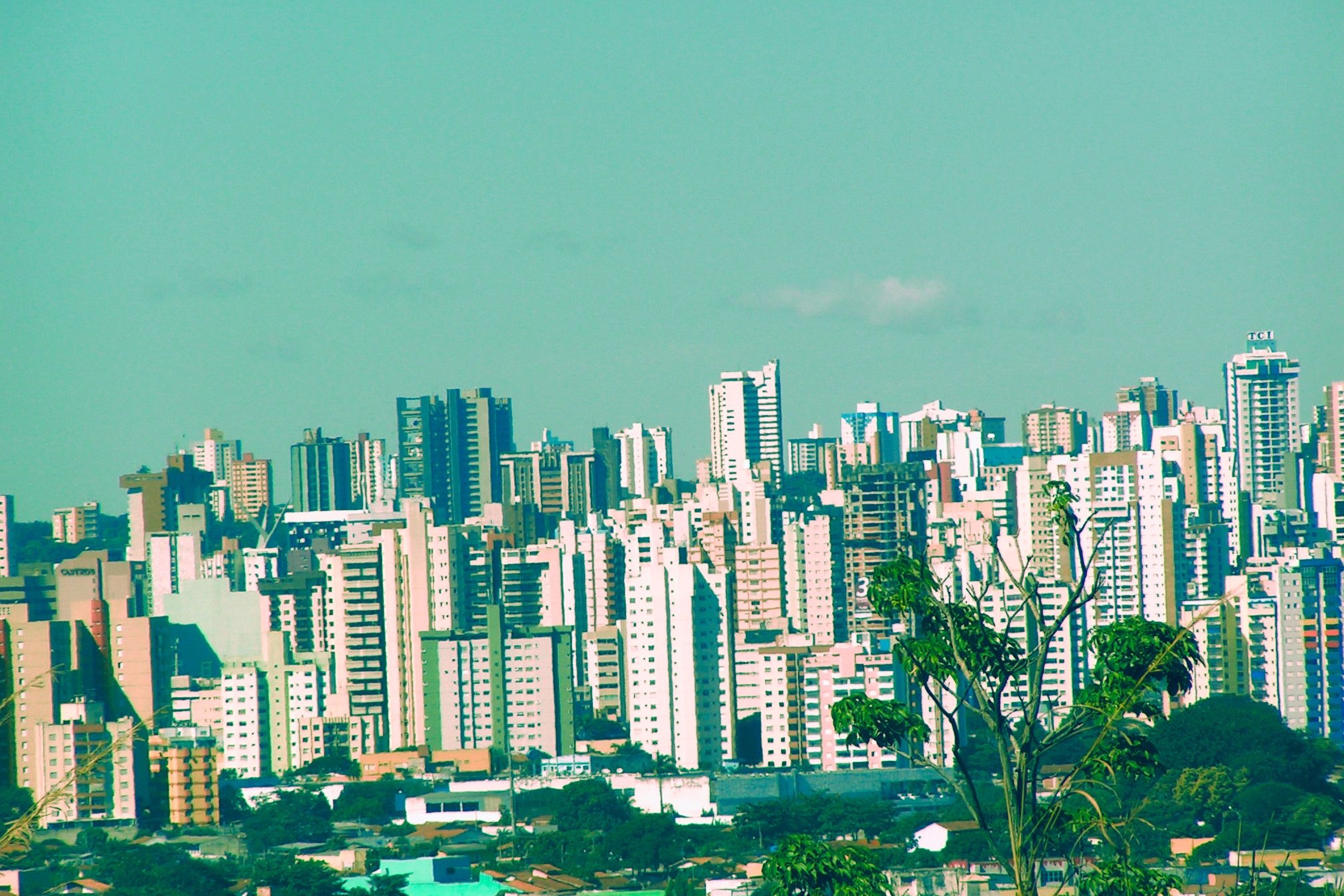 Features
Features
Desande is the growing dance music movement taking over the Brazilian mainstream
While Brazil's coastal areas are traditional hotbeds for electronic music, desande is booming in the country's Central-West region, fuelled by changing economic fortunes and a growing appetite for big room sounds
Victor Lou used to live in a single-storey house facing a dirt road in Senador Canedo, a small town three hours away from Brazil's capital, Brasília. The street was tarmacked in mid-2020, he says over WhatsApp—talking a day later than planned after a major blackout affected his district. The 28-year-old DJ is a renowned figure in the area: almost everybody there has heard about the kid with blonde moustache who broke through and became one of the hottest electronic music acts in Brazil.
Chances are that you will find a similar talk-of-the-town feeling at Illusionize and Visage's neighbourhoods, not that far from Lou's town. The three DJs and friends are addressed as the kings of desande, a new music strain that ranges from tech-house to big room and is fuelling a powerful wave of Brazilian music-makers.
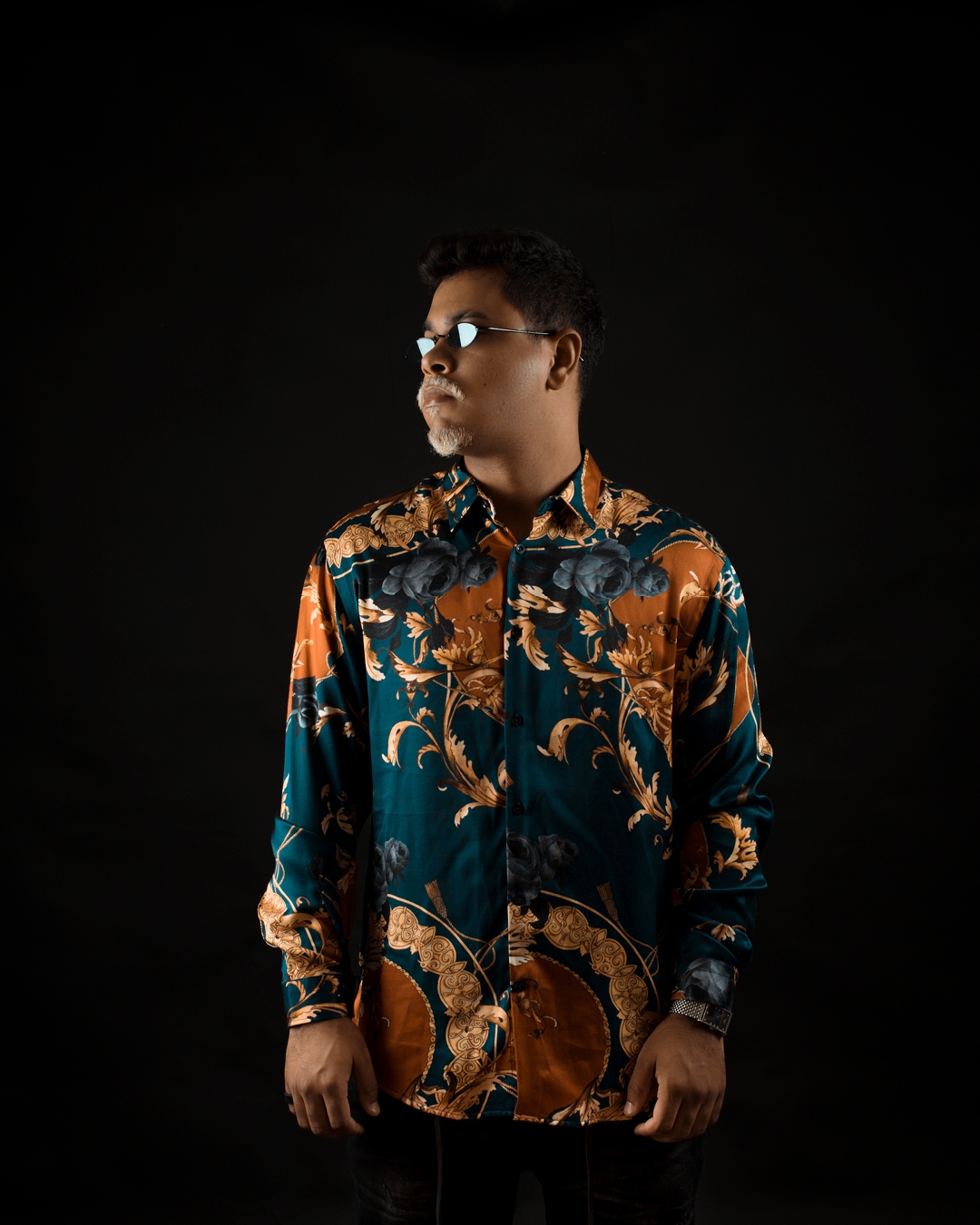
The trio's rising path is remarkable. In less than five years they've grown from impromptu stages to top-tier festivals, such as Brazil's Lollapalooza or Thailand's S2O. But equally impressive is the birthplace of their music. While Brazil's coastal areas have always provided names to the electronic music frontlines, whether in venues like São Paulo's D-Edge or Rio's baile funk experiments, desande music has been brewed in the country's belly: the Central-West.
Read this next: Meet the producers turning Bahia into a global bass paradise
Goiânia, the region's main city, is commonly associated with immense farmlands, agribusiness elites, low-income working-class suburbs and sertanejo, a country music-like style that has evolved from rural areas to become one of the most profitable industries in Brazil's showbiz. Both as an offshoot and an outcome that seems obvious only now, desande is a dancefloor-made portrait of a country's changing fortunes over the past decade.
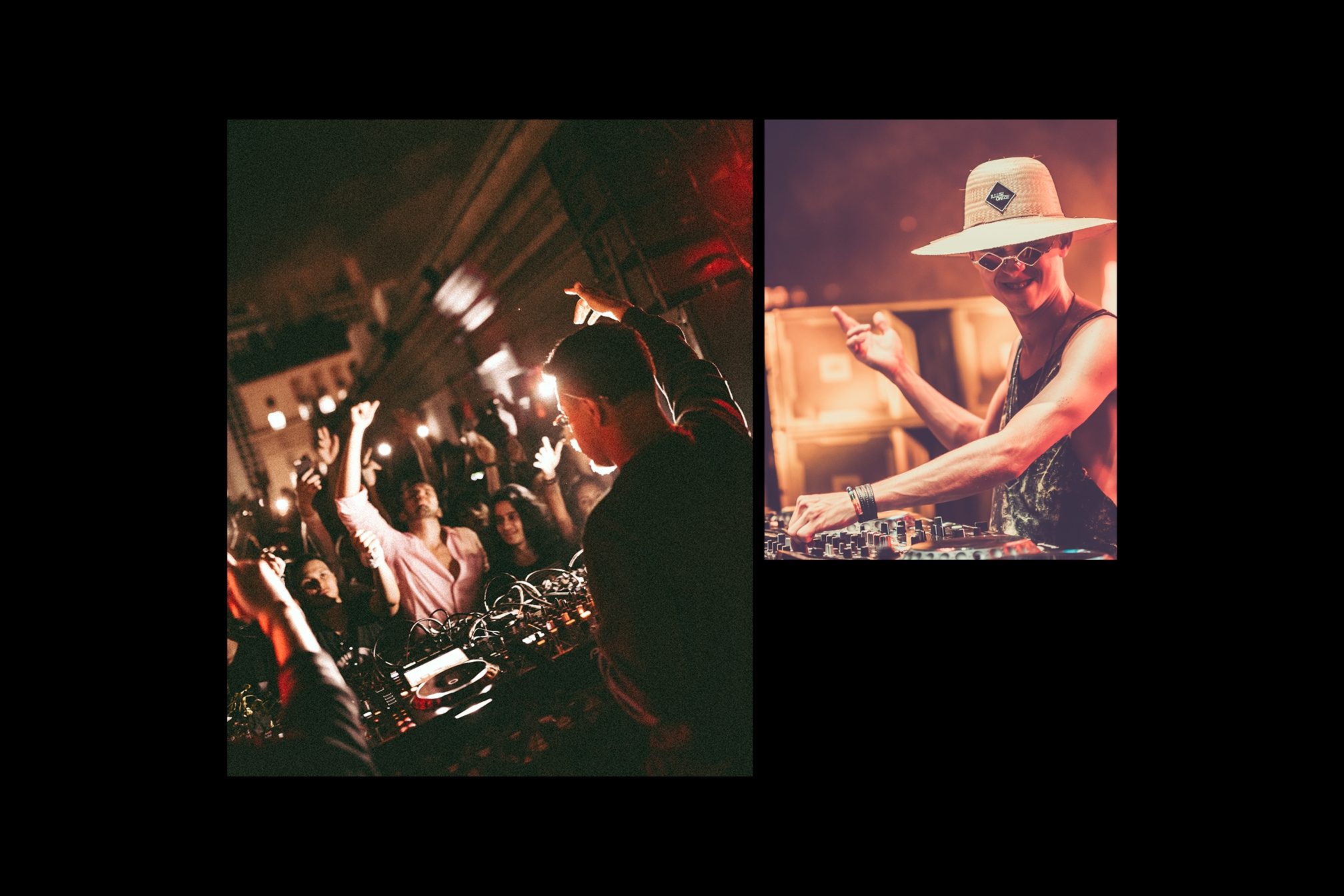
"Desande was just a slang word at the time, something we used like 'let's go to a desande'," explains Lou. It was the beginning of the 2010s and knowing the whereabouts of a desande (which means literally "misstep") was an unmissable invitation for a young kid in Goiânia who was into partying and raving. It was only around 2018 when the word became a tag for his music-making.
"I remember that when I finally started to release tracks, a few years ago, a lot of people asked me what that kind of music it was," says Lou. "At first, I was ashamed to call that desande, but then I realized that this is something of ours, created by us, and desande is the only idea we can relate to when thinking about this kind of music."
Today Lou is a proud defender of desande alongside Illusionize, Visage and a number of other Brazilian DJs and producers like Almanac, Carola, Sterium, and Flux Zone, to name a few. Their music pivots around slick, multilayered basslines, bold kicks, catchy build-ups, minimal key lines, loads of vocal shots, and the groove—a term the DJs use to speak about the untranslatable flavour of the counter-metric rhythms that underlies several Brazilian music genres.
"You need an appealing bassline, vocals that stick to your mind and a groove, a good one", says Illusionize, real name Pedro Mendes. A skinny boy with an unthreatening voice, he reminds me of a superhero who embodies a secret persona once the cape is on—in his case, the cape is a sombrero-style hat that's become his signature mark whenever he's behind the decks. Executing sharp cuts with the CDJ knobs and forgoing headphones—"I'm used to the cues and drops," he says— Pedro is the face of desande. "The groove is in the drums. I mean, my track 'Desande' is the purest desande."
Read this next: Brega funk is the music of Recife that's taking over Brazil
Illusionize has a point, but the track that has come to define the movement is another one of his productions, 'Down'. The song has collected 40 million plays on Spotify and YouTube since its release in 2018, marking an indisputable milestone for the young Brazilian DJ. Bringing together some sort of Shepard effect, a sample of Major Lazer's 'Original Don', dark synth phrases and a thick bassline, Illusionize's 'Down' is a must-have for any party featuring the word desande.
These parties encompass a solid and yet smooth tide in Brazilian music: the increasing unification of mainstream electronic music and audiences that have historically been marginalised.
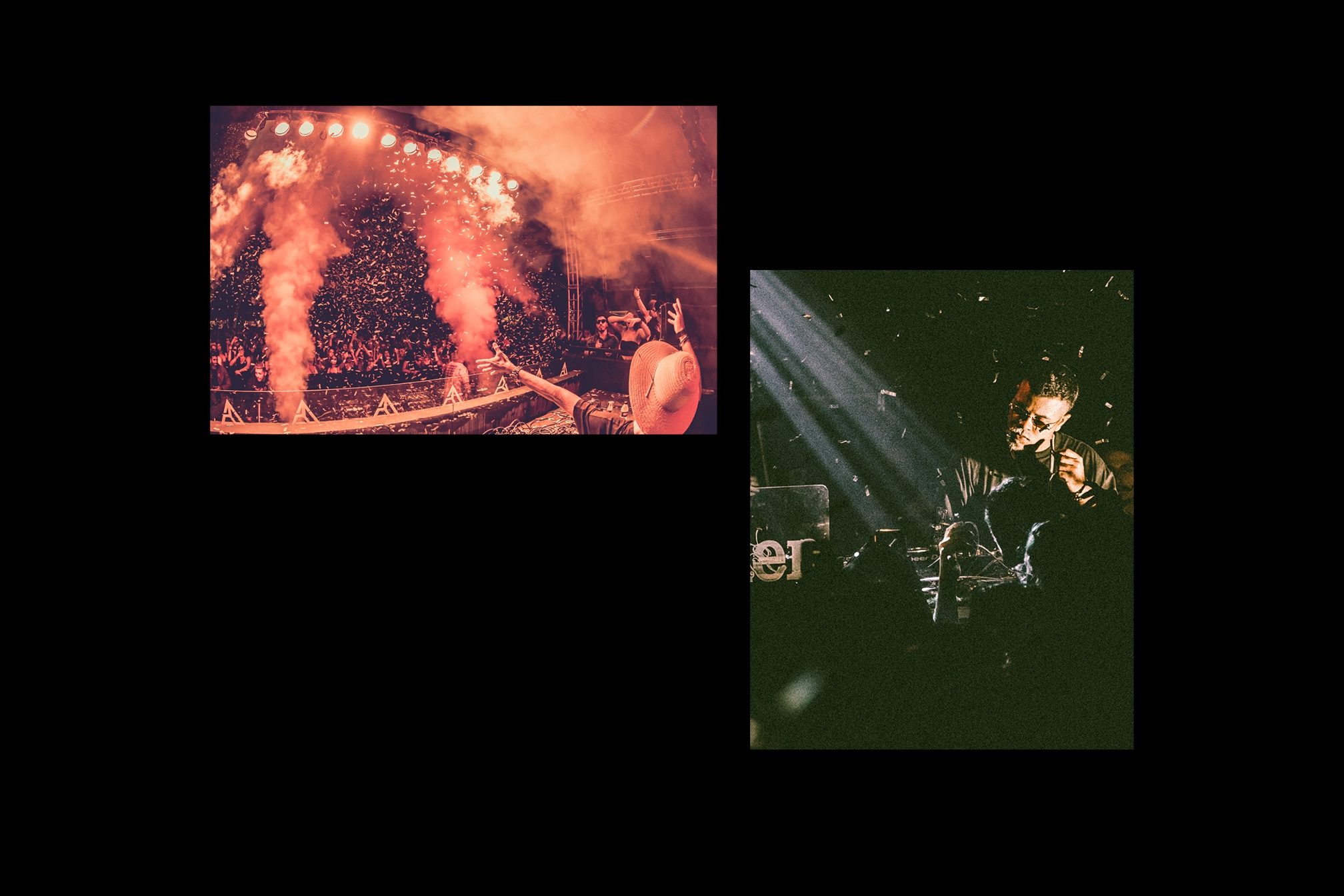
In the past two decades, club music in Brazil has assumed the form of commercial entertainment for the middle class or an aesthetic resource for music-makers from different backgrounds—baile funk DJs and rap beatmakers, for instance. Apart from that and the enduring psytrance raving scene, a number of scenes have blossomed under the radar. These movements have pumped energy into underground Brazilian dancefloors and given birth to several renowned names, from 90s drum 'n' bass staple DJ Marky to production whizz BADSISTA.
Desande, however, represents the first time a Brazilian music scene led by kids from blue-collar and low-income backgrounds rises up to become the mainstream electronic music. Moreover, looking at the big picture: Goiânia is outside of what one would call the centre of the Brazilian club axis. "I know for a fact that when they see us playing, the kids from our area, they see us as a source of inspiration", says Illusionize. "We're all together in this, we are this music."
Read this next: We went to the vinyl factory that's kickstarting Brazil's homegrown vinyl scene
Not only a sound, desande also exists as moves on the dancefloor. Arms must sculpt the air with ample gestures, whether side to side or up and down. At the same time, one foot mirrors the upper body with quick stomps, from the back of the heel to the tip of the toe, while the other one hops lightly at each bar kick. If you execute the steps gracefully, you earn the right to be known as a surfer—dexterous dancers that glide smoothly on the floor. This is the sarrinho, desande's unofficial dance.
"It's a 100% Brazilian dance," says Amanda Caroline, who's climbing up Brazil's ferociously competitive Instagram influencer fauna as a sarrinho expert. With the help of short videos, the 19-year-old student gives tips and encourages newcomers to embrace this Brazilian blend of footwork and shuffling. "I feel that there's life in desande, and there's no point in dancing to lifeless music", she affirms.
Amanda started to dance in 2016, a year before she had the legal age to go clubbing. She's from Timbó, a small town located in the Brazilian southern state of Santa Catarina. Before the pandemic, she was a regular attendee of the electronic music clubs in larger cities like Itajaí, where desande DJs often perform.
As Amanda points out, however, the first sarrinho dancer to get online clout is not from Brazil's South nor Central areas. "There are videos and social media pages about sarrinho that date back to 2012, but the person who first started it for real is a guy named Nenê Raridades," she says.
Nenê is the self-titled father of sarrinho, according to his Instagram profile. On YouTube, a video shows him performing his moves on a packed dancefloor among kids who are shoving each other to try to catch a glimpse of the star — a few crowd members even fancy a dance-off. Nenê wears the Oakley Medusa, a kinky leather balaclava with synthetic dreadlocks that suits him as a crown suits a king.
Although the helmet may seem an odd, arguably bizarre accessory for clubbing, the Medusa is rather a dream item for many kids in Brazil. A quick stop-by on a favela bloc party is enough to picture how much the brand Oakley is loved among boys and girls from underprivileged, mostly Black neighbourhoods.
With desande and sarrinho increasingly paving an intertwined connection between the ends and the clubs, the O brand has become the label of a new public: the BDO, or Bonde da Oakley—the "Oakley Crew". "Sarrinho and Oakley are extremely attached to each other," explains Amanda. "And there's some prejudice against it, against the people who dance and the people who dress like that."
Read this next: No more 4x4: How sounds from the Global South stopped club culture stagnating
Stroking his blonde beard — homemade hair bleach is a fashion trend among Brazilian kids in many favelas — Victor Lou reflects: "I love the BDO aesthetics, and how these kids react to this music we make. It shows a sense of identity. We've had gigs in Russia, the USA, our music has gone international, and it comes from the ghettos. I think that desande is a movement from the ghettos." Starting from the ends, desande is now on its way to the top.
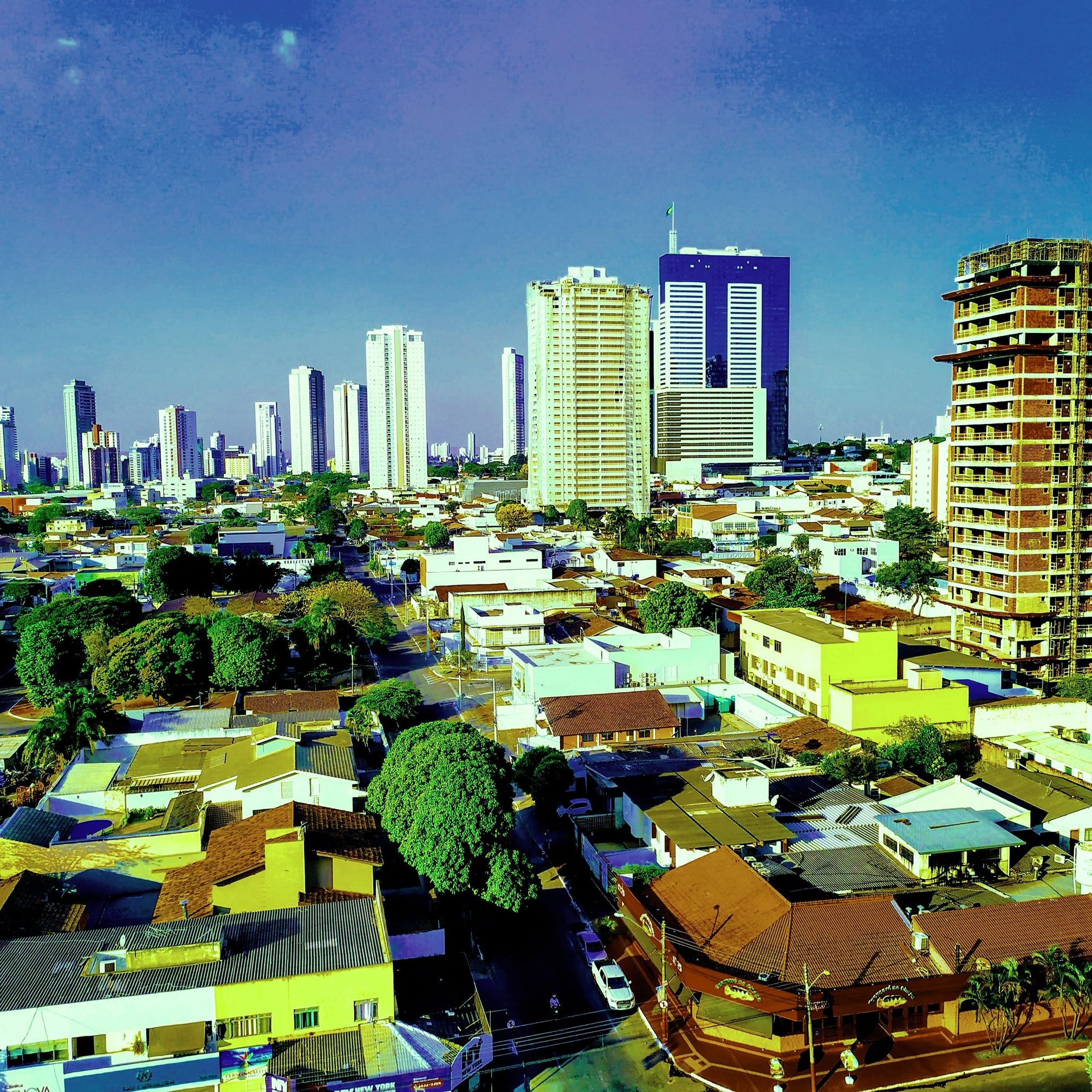
Years before headlining international stages under the alias Illusionize, Pedro Mendes received a booking request to perform at a farm. It was the beginning of the 2010s and he got really excited about the gig. Not because it was the dreamlike festival, with all the riders and pyrotechnics the biggest DJs in the world can dream of. What got his heart beating hard was the chance to play at one of Goiânia's huge desande parties.
"Desande was something that was part of our way of speaking, and eventually it became a music genre", Pedro says. "But today it's much more than that; for us, the kids from Goiânia and the surrounding areas, desande is a lifestyle, something that comes from years ago."
Desande, as a movement, first started with a common practice in Brazilian underprivileged neighbourhoods: the paredões, or big walls. These boisterous, powerful sets of speakers can be found inside car trunks or attached to many vehicles all over Brazil—a country which ranks among the top ten nations in the world for automobile production.
Blasting music through huge sound boxes, some paredões are not that different from Jamaican soundsystems. Just like Duke Reid's Sound System or Coxsone Dodd's Outernational, these Brazilian machines are the stars of street or open-air parties. Such events were a breeding ground for desande in Goiânia. They have provided a sort of rave-slash-dancefloor culture for a large public who cannot afford expensive club tickets.
Read this next: 28 photos of soundsystems through the ages
Victor Lou, who used to be a proud paredão owner himself, started mixing with Virtual DJ running on a cheap notebook plugged onto the car's sound system. "At this time, club music was starting to be listened to by the kids from the ends here in Goiânia", says Lou.
Illusionize also made his DJ debut at the so-called desande parties in the first half of the 2010s. "When I started DJing, I used to spin baile funk, sertanejo, but also club music," he says. "Sometimes it was dangerous since there were known cases of brawls and even fire gun shootings. The local press was all over it attacking these parties and eventually, we migrated to closed venues that were not that expensive to get in."
Both Illusionize and Lou had little or no access to the internet in their first years of DJing. Yet, thanks to some pocket money and cyber cafes, they managed to connect through social media groups on Orkut and Facebook, where they also used to share their track selections for the developing desande community.
Visage, real name Fabio Santos, met the two DJs on social media as well. Coming from an evangelical Catholic upbringing, the kid with curly hair was baby-stepping the DJ thing in 2013. Eventually, the three friends realised they shared the same background and ideas. Not only did they love the thumps and oontz of electronic music, but they wanted to step up the game and produce their own stuff. "We've realized that we needed to make our tracks in order to become part of the club scene", says Visage.
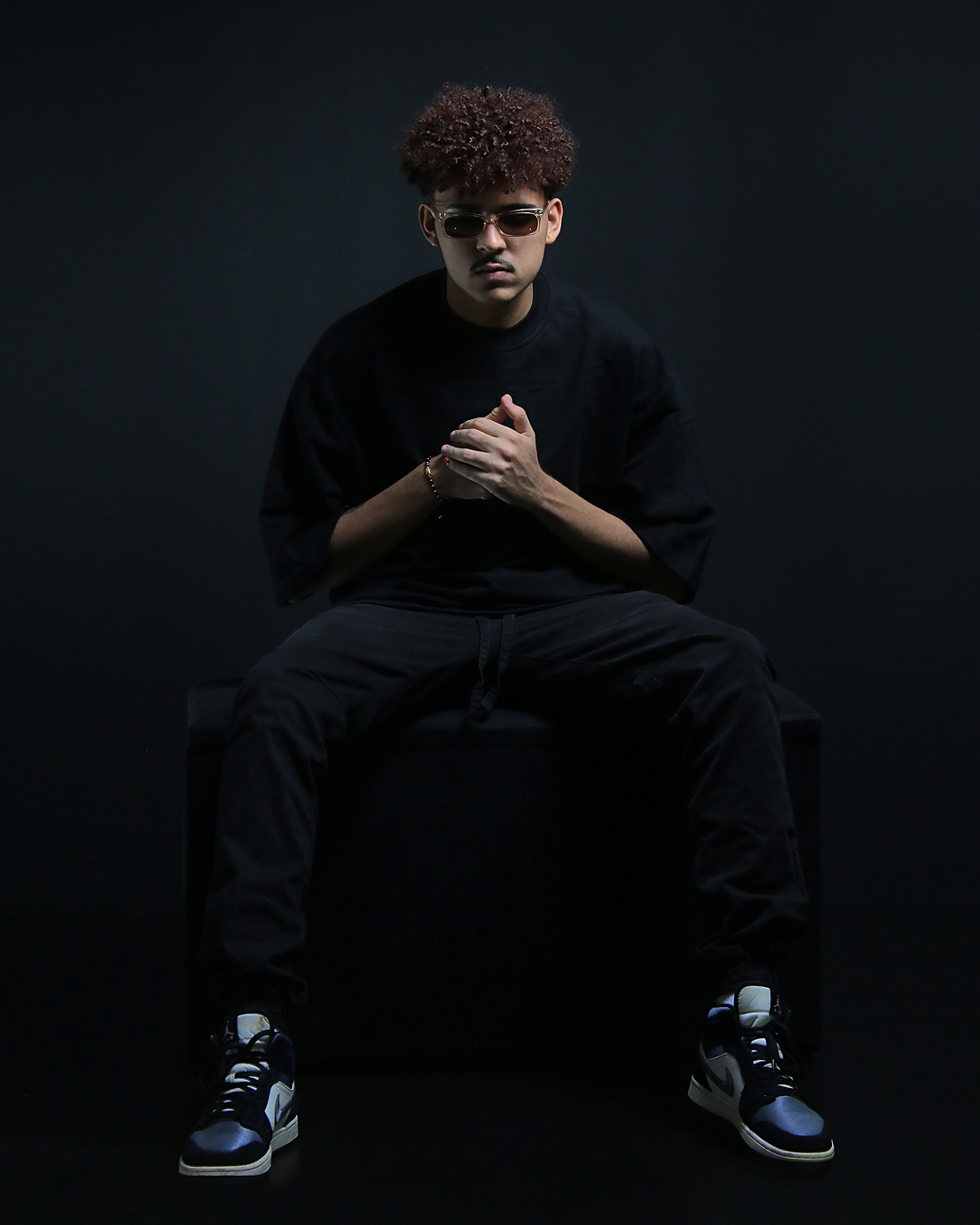
With a taste for the likes of Nick Hannam, Claude VonStroke, Tchami and their labels' rosters—the paredões essentials—and being deeply rooted in a sonic culture pivoting around the bass frequencies, the trio have shaped the desande music over the past years. At first, sub-genres like bass house, deep house and jackin' house were their main resources, but they've grown out of that by sharpening their music-making and bringing sound signatures of their own like Brazilian Portuguese vocals, wobbling basslines and references to sarrinho and baile funk.
As the three DJs gained traction, mainly after a number of dancefloor-focused releases between 2016 and 2018, the desande scene picked up at a rapid pace in the Central-West as a result of a double-sided driving force. On the one hand, the birth of a farming-industrial elite in Brazil's Central-West with a taste for electronic music. On the other, a new musical movement rapidly picking up pace in the region.
Several music acts under the desande umbrella have popped up from the outskirts of Goiânia and surrounding areas since 2010, continuously delivering new tracks and heavy parties for a growing audience. During the same period, Brazil's Central-West region has led national economic indicators due to the power of large-scale farming. The sector's steady growth has been reinforced under Bolsonaro’s presidency. His loose environmental regulation has provided fertile ground for massive cropping while bringing the Amazon rainforest to a 12-year high in deforestation, according to the Brazilian Institute of Spatial Research (INPE).
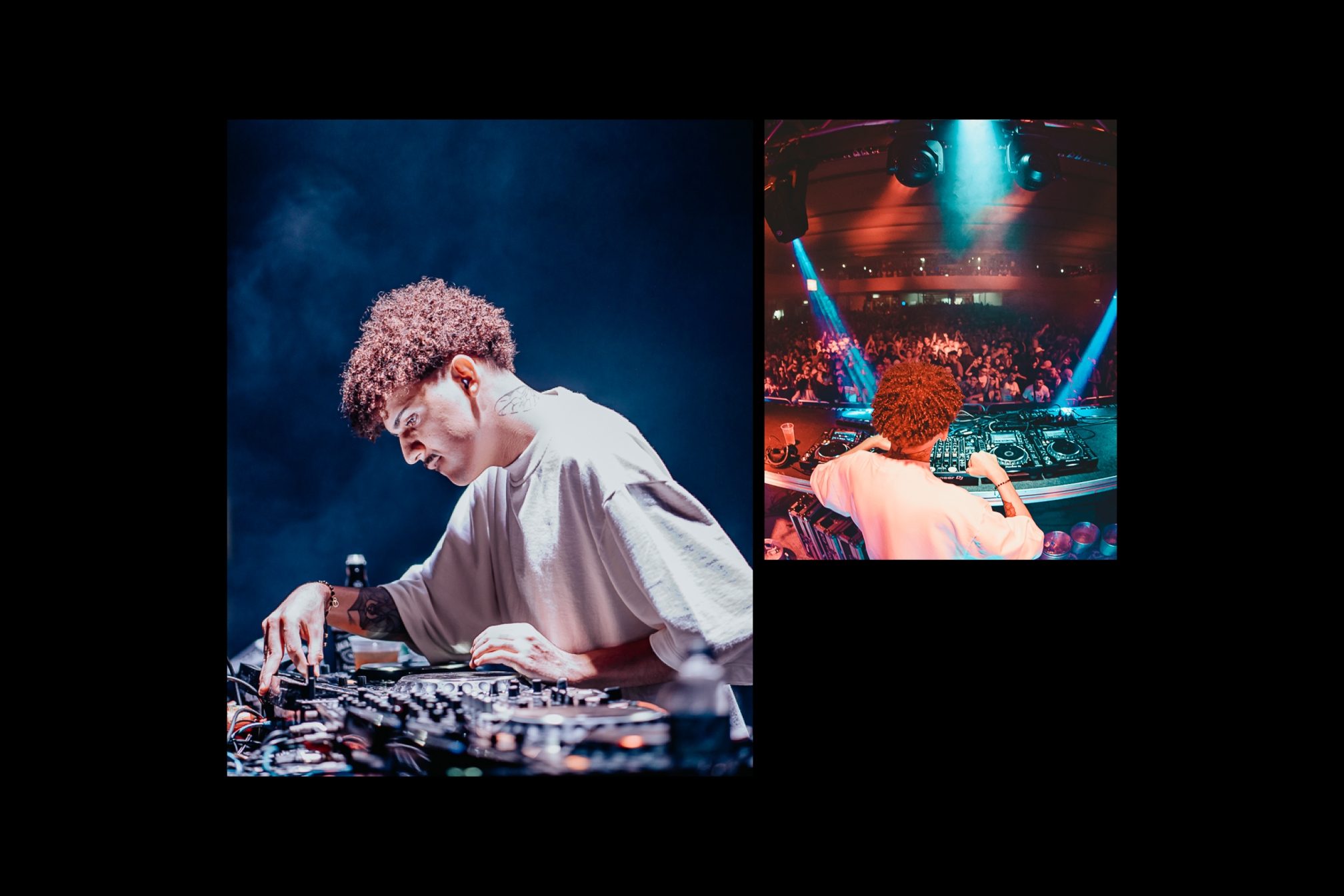
Flourishing from gigantic farmlands to huge sales to China, the rise of Brazil's agribusiness elite over the past decade is followed by the opening of first-class venues and the arrival of top-tier festivals in cities like Goiânia. Alongside this, the successive crises Brazil has faced since 2013—from widespread protests to the ascension of right-wing politicians—has forced party promoters to rely on local blood.
Klauss Goulart knows that for a fact. Originally a DJ, today he splits his time between the management of his family farmland and the demands of being a CEO at the DJ agency Plus Network. "We used to depend on international DJs a few years ago," he says. "But in 2014, after we had the first edition of Tomorrowland in Brazil, the Brazilian Real started to plunge, so bringing European or North American acts has become unaffordable. That's when the first Brazilian star DJs arise."
Among many, Klauss is referring especially to the global acclaimed Alok and Vintage Culture. They were born in Central-West Brazil as well: Alok comes from Brasília and Vintage Culture was raised in Campo Grande, Klauss' hometown (and the same city where mythical Brazilian club D-Edge was founded before moving to São Paulo). Both Beatport chart-leaders who navigate pop and commercial pools—from guest appearances on TV shows to headlining different iterations of the EDC festival— Alok and Vintage Culture broke through ahead of the desande boom in their region. The stages that have witnessed them rise are the same stages that now welcome the likes of Illusionize, Visage and Victor Lou.
Read this next: Laroc is a furious testament to Brazil's dedication to Brazil's dedication to dance music
Pushing from the edges and taking advantage from the inside, desande has grown from an underground movement into an upcoming genre. Now, it's taking the form of a Brazilian electronic music mainstream.
Through this path, it has even managed to coalesce the omnipotent, traditional music turned pop, sertanejo—the music genre tagging 23 of the 50 most-streamed songs on Spotify Brazil in 2020. Based in Goiânia and with branches that go as far as Portugal, the once sertanejo-only Villa Mix Festival hosted a number of DJs performances over the past years, such as Alok and the duo Jetlag. "Parties in the Central-West were traditionally sertanejo parties, but electronic music is the music of the new generation", Illusionize says. "Electronic music is stronger than ever".
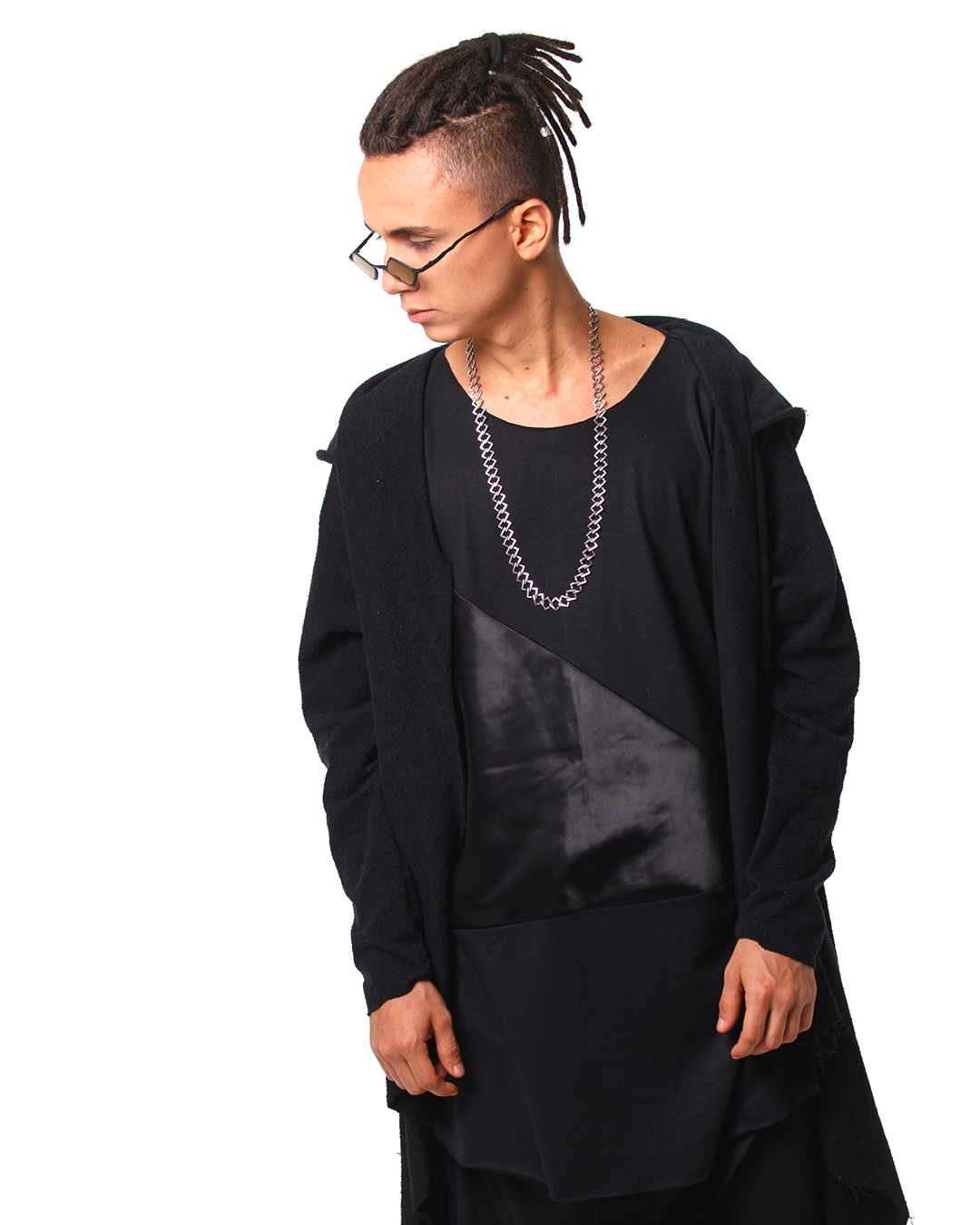
Klauss makes a parallel between the desande scene and the explosion of Dutch DJs in 2010 when names like Tiësto, Afrojack and Armin Van Buuren ruled the dancefloors with their big room take on house music. "It's the same thing with desande," Klauss affirms. "We're living in a time of great creativity, these young producers are trendsetters and they have a bond, a shared identity."
Envisioning the scene expansion, Klauss was about to kick off a travelling desande festival in 2020 across Brazilian cities like Belo Horizonte, São Paulo, Rio and Florianópolis when the pandemic put the world on hold. Now, even the gigs postponed to 2021 seem to be an unlikely reality with the foreseeable future not looking promising for Brazil: the country ranks second in the world for the number of deaths related to COVID-19 and the number of new cases has been averaging higher than 60,000 a day for three months due to the inefficient administration of President Bolsonaro, while many places around the world are finding a way out of the health crisis.
Desande keeps on going despite the pandemic, the prejudices, the eyebrow raising and the pitfalls of the mainstream. Locked at home since March 2020, Illusionize started to work on his album, to be released in October. Visage has been producing new tracks on a restless basis. Victor Lou often uploads DJ sets to his social media and is getting his hands on a new project: a home studio of his own, in his area, with the doors open to the local community.
"I still look at all we're doing and think that's kind of crazy because we're from Goiânia, you know? Everyone here is seeing that these boys, the boys making electronic music, can now provide to their families," Lou reflects, shortly before talking about his other DIY project: a roaring paredão for his new car to blast desande through.
Felipe Maia is a freelance writer, follow him on Twitter


